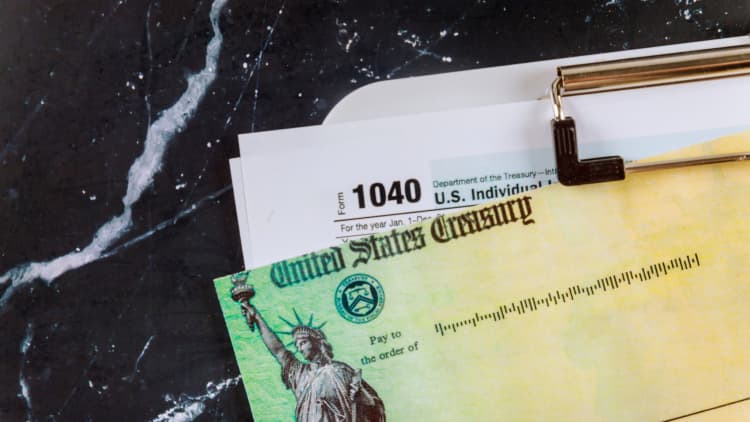Jgi/tom Grill | Tetra Images | Getty Images
Does your year-end bonus look smaller than expected?
Tax withholding is a likely culprit, but Uncle Sam may pay some back when you file an annual tax return, experts said.
Bonuses are treated as taxable income, like wages in a typical paycheck.
However, unlike wages, the IRS treats them as “supplemental” income, which is generally subject to different tax withholding rules.
Why the tax may seem high
Most often, employers withhold tax from bonuses at a flat 22% federal rate, according to tax experts.
As such, bonus tax withholding “will look like a big number” for any taxpayer whose federal marginal income tax rate is less than 22%, said Jeremiah Barlow, head of wealth solutions at Mercer Advisors.
More from Personal Finance:
Here’s when you can visit a national park for free in 2024
3 year-end investment tax tips from top-ranked financial advisors
Annuity sales are on track for a record year. What to know before buying
Many taxpayers fall into that category. In 2023, that group includes single individuals with a taxable income up to $44,725, and married couples who file a joint return with income up to $89,450.
In 2020, 49% of individual tax returns — roughly 81 million — were in a marginal income tax bracket below 22%, according to IRS statistics. That figure includes taxpayers in the 10% and 12% tax brackets but excludes those in the 0% bracket.
Bonuses may have additional tax withheld
A bonus may be subject to other withholding, too, such as state and local income taxes.
Employers in California, for example, withhold supplemental wages at a 10.2% state rate — meaning residents’ bonuses would likely be withheld at a combined 32.2% state and federal rate, Barlow said.

In addition, bonuses are also typically subject to Social Security and Medicare payroll taxes, of 6.2% and 1.45%, respectively.
“Very quickly someone might find themselves where [roughly] 40% is withheld,” said Matthew Fleming, a certified financial planner and senior wealth advisor at Vanguard.
Employers must also withhold a flat 37% from any bonus amounts that exceed $1 million.
Companies also have a second withholding option: Instead of issuing a separate bonus check, they can lump a bonus in with your typical paycheck. Workers would pay tax at their usual income tax rates.
You may get some of that tax back
For those whose checks appear small, there’s a silver lining. “Luckily, this means you could be due for a [tax] refund,” which would be equal to the extra amount your employer withheld, wrote Fidelity Investments. You’d receive any refund owed to you when filing an annual tax return.
Of course, the opposite could also be true. Higher earners, such as those in the 24%, 32%, 35% or 37% federal income brackets, may wind up owing the IRS more money at tax time if their bonus was withheld at a flat 22%, Barlow said.
A large bonus — say, $200,000 — could easily push someone into the 32% or 35% bracket, he added.
“Don’t assume that bonus amount they took out was enough,” Barlow said.
Don’t miss these stories from CNBC PRO:






